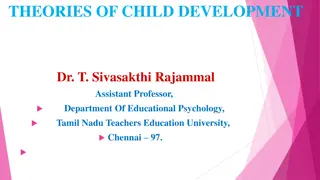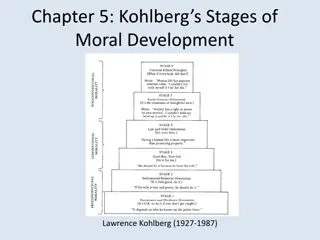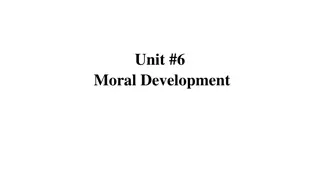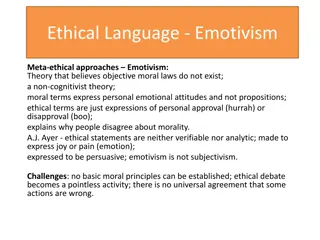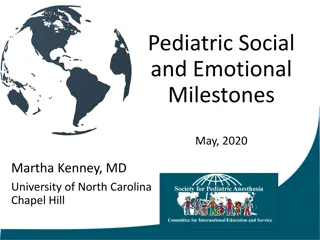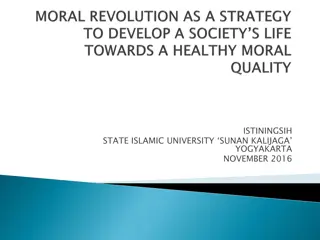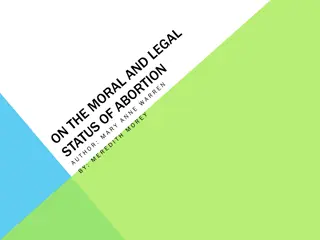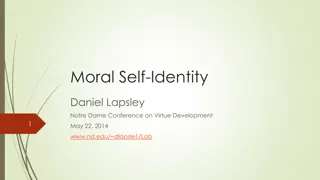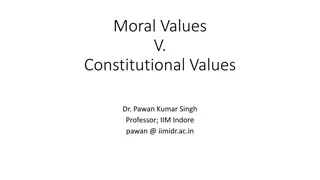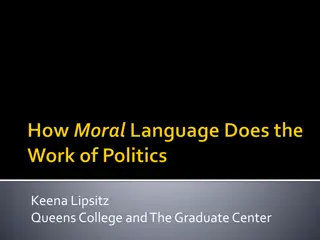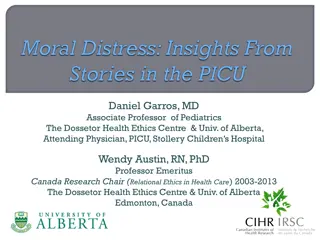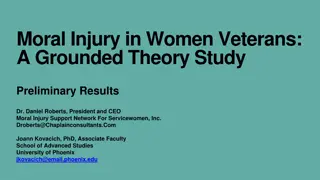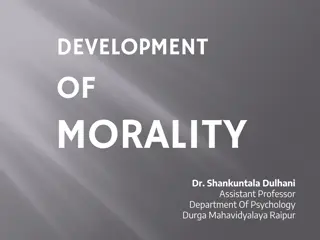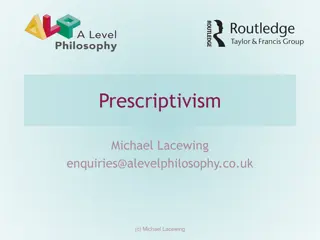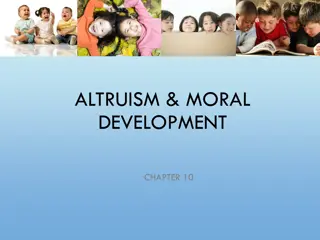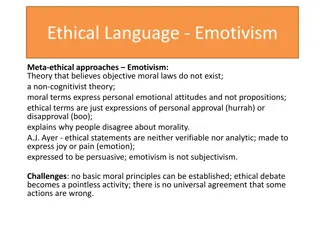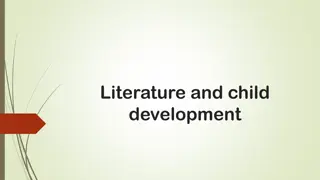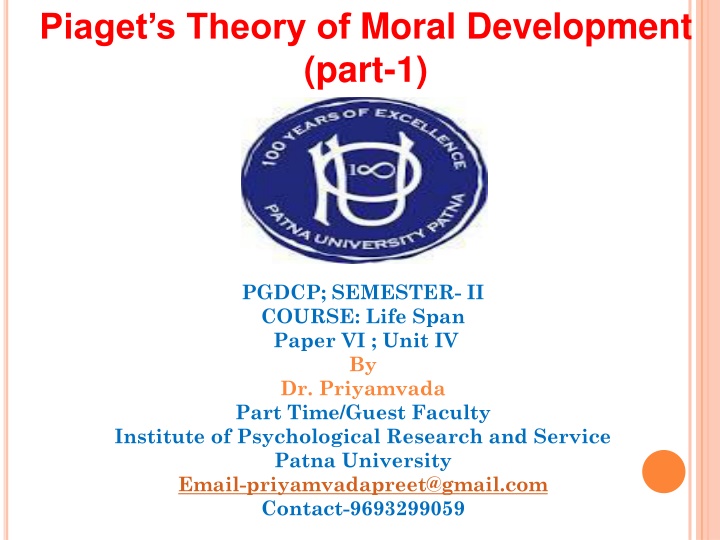
Piaget's Theory of Moral Development in Children
Explore Jean Piaget's theory of moral development, focusing on how children construct morality from a social-cognitive and social-emotional perspective. Learn about Piaget's research methods, key concepts like respect for rules and justice, and developmental stages in children's moral reasoning.
Download Presentation

Please find below an Image/Link to download the presentation.
The content on the website is provided AS IS for your information and personal use only. It may not be sold, licensed, or shared on other websites without obtaining consent from the author. If you encounter any issues during the download, it is possible that the publisher has removed the file from their server.
You are allowed to download the files provided on this website for personal or commercial use, subject to the condition that they are used lawfully. All files are the property of their respective owners.
The content on the website is provided AS IS for your information and personal use only. It may not be sold, licensed, or shared on other websites without obtaining consent from the author.
E N D
Presentation Transcript
Piagets Theory of Moral Development (part-1) PGDCP; SEMESTER- II COURSE: Life Span Paper VI ; Unit IV By Dr. Priyamvada Part Time/Guest Faculty Institute of Psychological Research and Service Patna University Email-priyamvadapreet@gmail.com Contact-9693299059
JEAN PIAGET Piaget was born on 9 August1896 in Switzerland the oldest son of Arthur Piaget. He was Swizz Psychologist worked specially for children and for their education. His well known theories are theory of cognitive development and genetic epistemology. He died on 16 sept 1980. One of the main theory the theory of moral development is the important one for child s cognitive development.
PIAGET'S THEORYOF MORAL DEVELOPMENT While both Freud and Skinner focused on the external forces that bear on morality (parents in the case of Freud, and behavioral contingencies in the case of Skinner), Jean Piaget (1965) focused on the individual's construction, construal, and interpretation of morality from a social- cognitive and social-emotional perspective.[3] To understand adult morality, Piaget believed that it was necessary to study both how morality manifests in the child's world as well as the factors that contribute to the emergence of central moral concepts such as welfare, justice, and rights. Interviewing children using the Clinical Interview Method, Piaget (1965) found that young children were focused on authority mandates, and that with age children become autonomous, evaluating actions from a set of independent principles of morality. Piaget characterizes the development of morality of children through observing children while playing games to see if rules are followed.
PIAGETS THEORYOF MORAL DEVELOPMENT Piaget s (1932/1965) early work on children s moral judgments focused on two aspects of moral reasoning: respect for rules and conceptions of justice. He studied developing respect for rules by playing marbles with Swiss children between ages 5 and 13. As they played, Piaget asked questions such as- Where do these rules come from? Must everyone obey a rule? Can these rules be changed? To study children s conceptions of justice, Piaget gave them moral-decision stories to ponder. Here is one example:-
PIAGETS STORIES Story A. Story B. A little boy who is called John is in his room. He is called to dinner. He goes into the dining room. But behind the door there was a chair, and on the chair there was a tray with 15 cups on it. John couldn t have known that there was all this behind the door. He goes in, the door knocks against the tray, bang go the 15 cups, and they all get broken. Once there was a little boy whose name was Henry. One day when his mother was out he tried to reach some jam in the cupboard. He climbed onto a chair and stretched out his arm. But the jam was too high up, and he couldn t reach it. . . . While he was trying to get it, he knocked over a cup. The cup fell down and broke. (Piaget, 1932/1965, p. 122)
PIAGETS THEORYOF MORAL DEVELOPMENT Having heard the stories, participants were asked such questions as Which child is naughtier? Why? and How should the naughtier child be punished? Using these research techniques, Piaget formulated a stage theory of moral development that includes a premoral period and two moral stages.
References Shaffer. David. R., and Kipp. Katherine., Developmental Psychology, Childhood and adolescence, 8th edition, Wadsworth cengage learning. Google images and Google search Thank you

